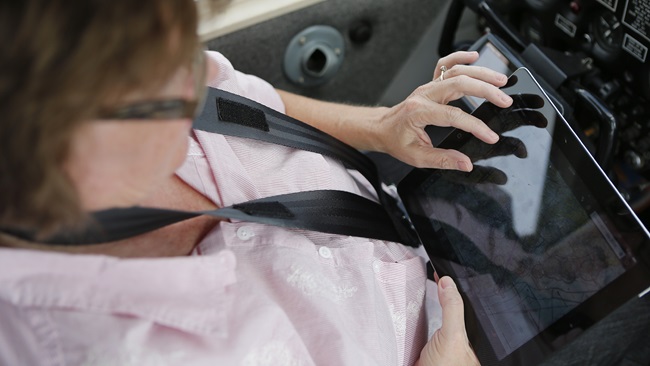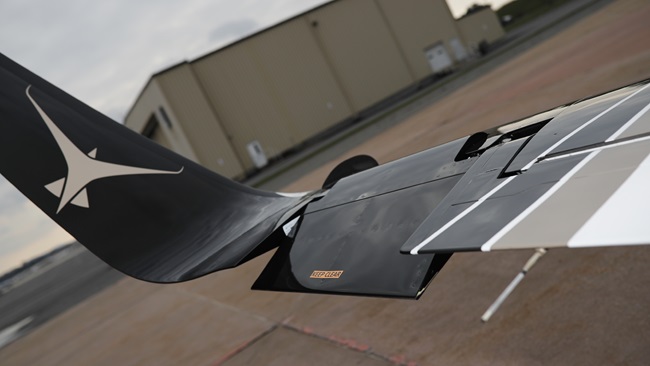Charge drone batteries in the drone
A team of engineers from Europe backed by U.S. venture capital has developed a wireless charging pad for small, unmanned aircraft, with an eye on automation and operations at scale.
Berlin-based tech startup Skysense aims to be ready when drones are allowed more autonomy, and meanwhile to satisfy customers who prefer to charge their batteries between flights right on the landing pad, without removing the battery from the aircraft.
The charging pad can top off the energy of any drone battery, or batteries, up to a limit of 20 amp hours. (For reference, a DJI TB48 battery used in the Inspire 1 stores 5.7 amp hours of electric energy.) The system delivers up to 500 watts to a depleted battery, and requires a small retrofit for the drone, amounting to 1.8 ounces (51 grams) of additional payload in the form of a few wires and a metal contact attached to the landing gear. The system can integrate with the Skysense GEIST software to remotely manage Skysense charging pads and stations, accessing device status, battery and charging data, and some other features from a remote location.
Much of the system's potential utility will require regulatory changes, since the FAA does not currently allow remote operation of drones. Still, the innovative approach to charging and managing drone batteries from near or far earned Skysense a first-place finish in NASA’s 2016 WorldWind Europa Challenge, and the company has received backing from investors via Qualcomm Ventures and Techstars, as well as interest from GoogleX, NASA, and other government agencies, Skysense reported in a recent press release.
A company spokesman wrote via email that product prices start at 3,500 Euros (about $4,353 at current exchange rates), though he emphasized that the firm’s main goal for now is to introduce itself, and make the drone world aware of systems that are ready today for tomorrow’s large-scale, autonomous operations.




